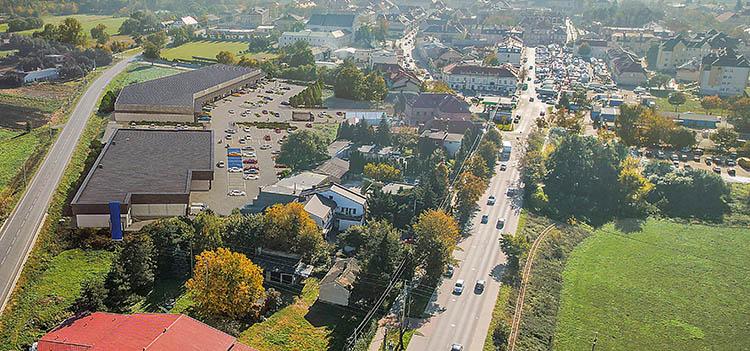There are still cities in central Poland where there are no modern shopping facilities
The development dynamics of the retail park sector has increased during the pandemic. Convenient, well-connected locations, a wide range of products, safety and quick shopping have convinced many consumers to remain customers of the parks even after the epidemic restrictions are loosened. The share of these facilities in the total volume of goods sold in individual product and service categories is systematically growing, and we do not expect this development to slow down significantly in the coming years.
This is the result of, among others: convenience - remember that retail parks usually have excellent transport connections and are located close to consumers' homes, which allows them to save time, as well as an interesting offer tailored to the requirements of local communities - the tenants in the parks are both global retail chains, as well as local entrepreneurs who cannot be found in large shopping malls due to, among other things, the costs of renting space. An example of such complementarity with the local offer is our newest retail park in Łęczyca, the construction of which will start soon. The facility is located right next to the local market, and a parking lot for approximately 200 cars, which we will build together with the park, will also serve customers using the market's offer. This commercial facility also means several dozen jobs, revenues for the commune and an increase in the attractiveness of the city's offer for residents.
There are still small and medium-sized towns on the Polish map that lack modern commercial space. Here again, an example may be Łęczyca, where, despite the city being located in the central part of the country, there has not been a modern commercial facility until now, and the city's inhabitants had to go to Kutno, 25 kilometers away, or Łódź, 50 kilometers away, to shop in branded stores. Retail parks fit perfectly into the supply gap and are at the same time a much less costly investment than large shopping malls, which additionally limits the investment risk. It should also be emphasized that these are flexible facilities that can be relatively easily adapted to changing market conditions and, for example, adapt existing areas for new functions. It is also important that these facilities complement online trade perfectly and often constitute the last link in the supply chain of goods ordered by consumers online.
It is worth emphasizing that banks are also beginning to notice the advantages of these assets, including their resistance to market turmoil, in the context of their financing. Until recently, interest in smaller facilities was relatively limited among financial institutions. However, banks noticed the advantages of these facilities: resistance to market turmoil, responding to the everyday needs of consumers, flexibility and the possibility of relatively easy re-commercialization in the event of changes in market conditions or expectations of local communities, and finally, limited risk related to lower investment costs and their lower degree of complexity compared to for commercial facilities in the centers of large cities. It is also important that the majority of tenants in even the smallest commercial facilities of this type are large, often international retail chains, which guarantees stable revenues. We also do not complain about the interest in our facilities from investment funds that purchase properties prepared by us to expand their investment portfolios.
Source: Stefan Sobolewski, Vice-President at Fortis Investments, a company specializing in delivering commercial projects to local markets in Poland, which is currently developing, among others, a retail park in Łęczyca (5,000 sq m GLA), which is the first modern commercial facility in this city. Previously, the company built retail parks, among others, in Ciechocinek, Łowicz, Lubrza, Opoczno, Chojnów or Strzelce Opolskie.








